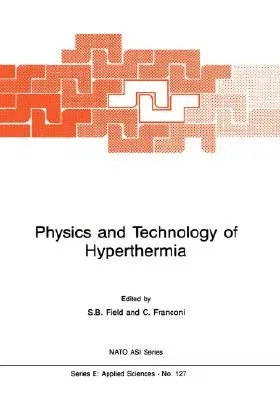Physics and Technology of Hyperthermia (1987)Hardcover - 1987, 31 March 1987

Qty
1
Turbo
Ships in 2 - 3 days
In Stock
Free Delivery
Cash on Delivery
15 Days
Free Returns
Secure Checkout

Part of Series
NATO Science Series E:
Part of Series
NATO Advanced Study Institutes Series
Part of Series
NATO Science Series: E:
Part of Series
NATO Science Series E
Part of Series
NATO Science Series E: (Closed)
Part of Series
NATO Science Series E (Closed):
Print Length
664 pages
Language
English
Publisher
Springer
Date Published
31 Mar 1987
ISBN-10
9024735092
ISBN-13
9789024735099
Description
Product Details
Book Edition:
1987
Book Format:
Hardcover
Country of Origin:
US
Date Published:
31 March 1987
Dimensions:
25.4 x
17.78 x
3.66 cm
ISBN-10:
9024735092
ISBN-13:
9789024735099
Language:
English
Location:
Dordrecht
Pages:
664
Publisher:
Series:
Weight:
1383.46 gm